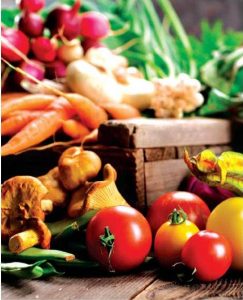Hybrids: More Than Just Cars
Walking down the produce section of the grocery store, you’ve probably at some point come across some unusual options–pluots, anyone? Although hybrid fruits tend to conjure up the image of fruits produced in a science laboratory, these fruits are actually more natural than you may realize.
Contrary to popular belief, hybrids are not produced using genetically modified organism technology. Hybrids actually use traditional pollination that can ordinarily occur in nature, but, by controlling it, cultivars can breed new generations of plants which have increasingly desirable characteristics. Once a variety is produced which meets satisfactory requirements, hybridization is able to produce the exact variety which would randomly occur in nature, but in a shorter period of time.
The benefit to farmers is that hybridization yields plants that are naturally disease resistant and better withstand heat, cold, and drought. They also produce more consistent and higher yields. The benefit to consumers is uniform fruit sizes and shapes, increased juiciness, improved taste, and better nutrition. So, the next time you stroll by the fruit section and spot a tangor (mandarin and orange), tayberry (red raspberry and blackberry), limequat (key lime and kumquat), or carambola (star fruit), give one a try to experience the best of both (fruit) worlds!
By Whitney Martin, Master of Public Health Student at Liberty University Intern for Bon Secours Physical Therapy and Sports Performance
For more information about nutrition and choosing healthy foods, visit us at http://www.bonsecoursphysicaltherapy.com/nutrition-counseling/


Comments are closed